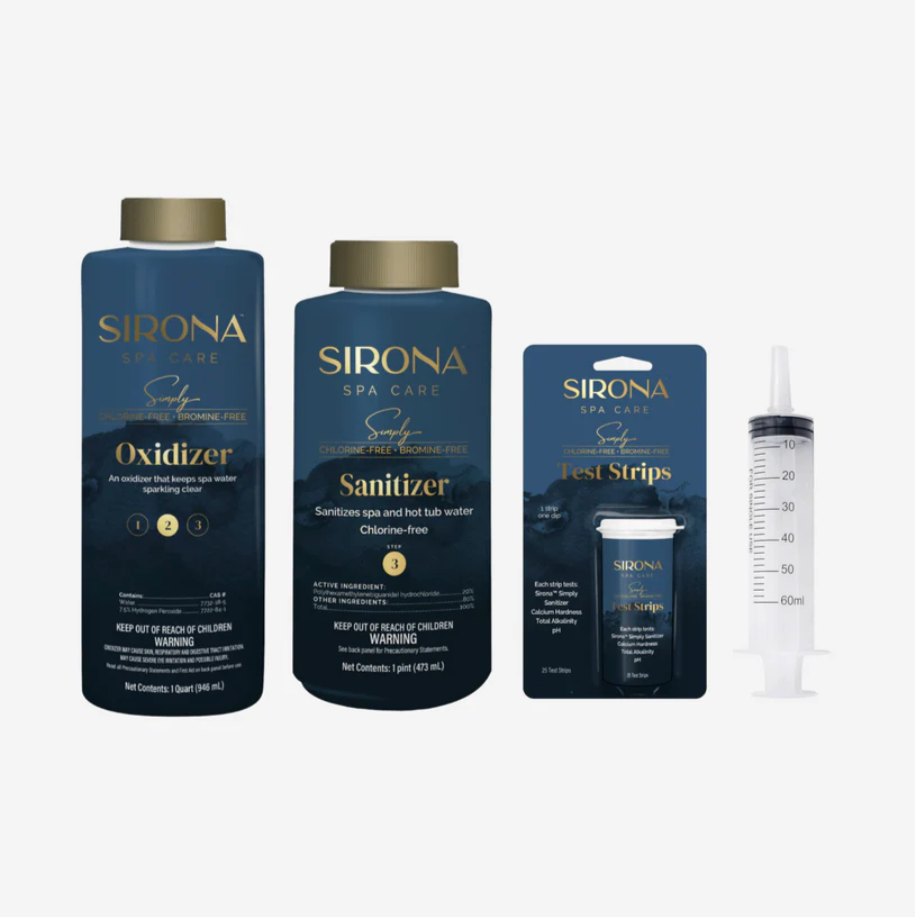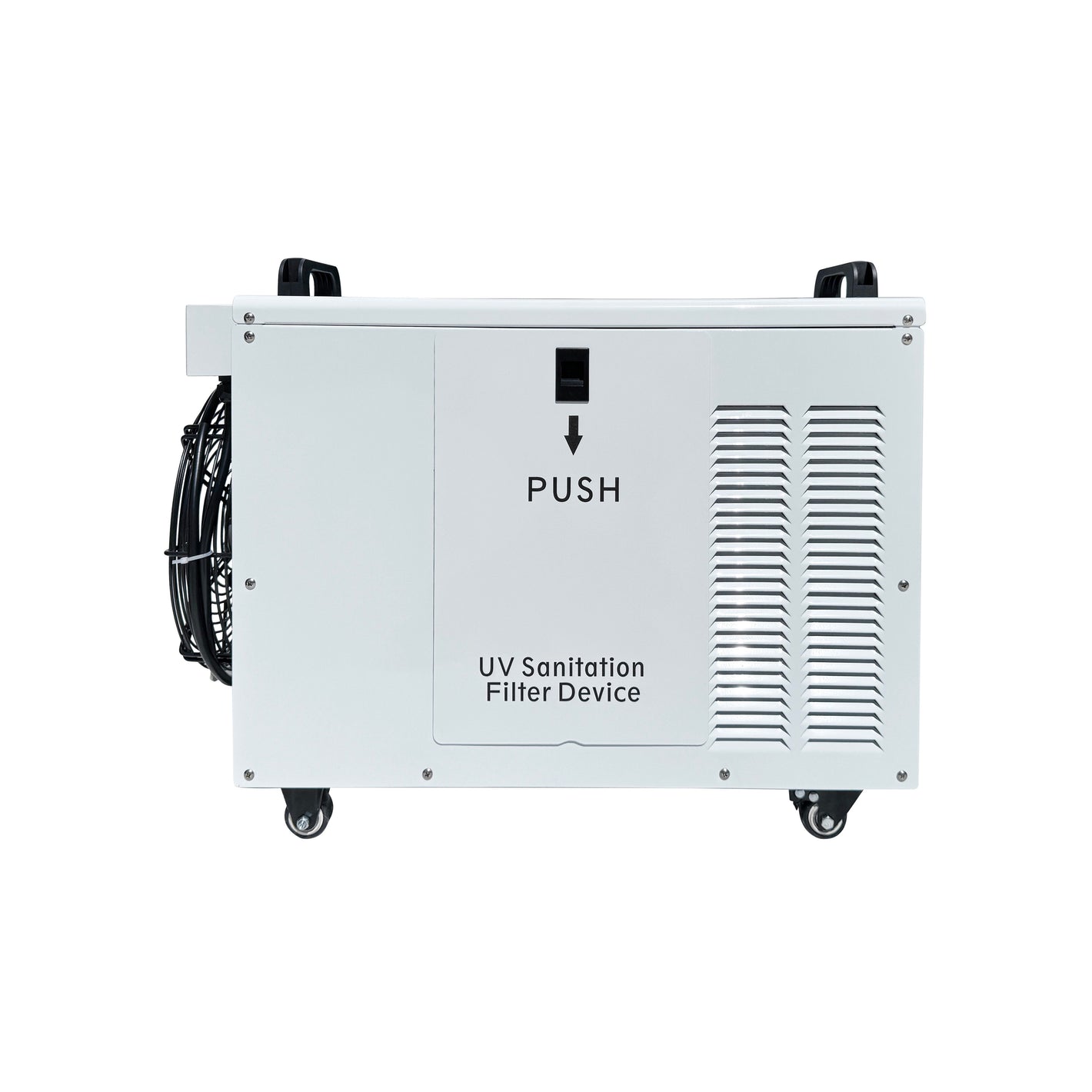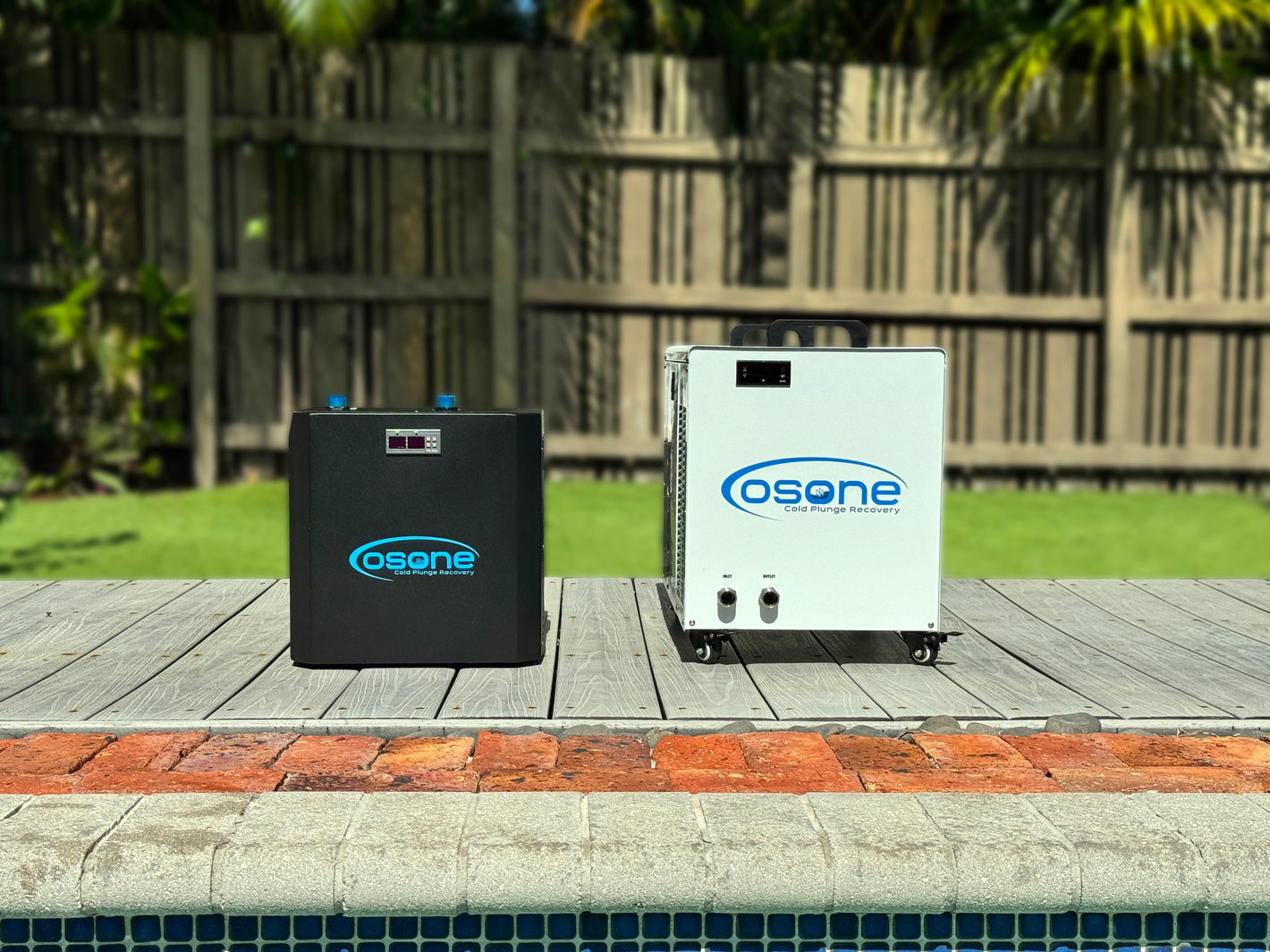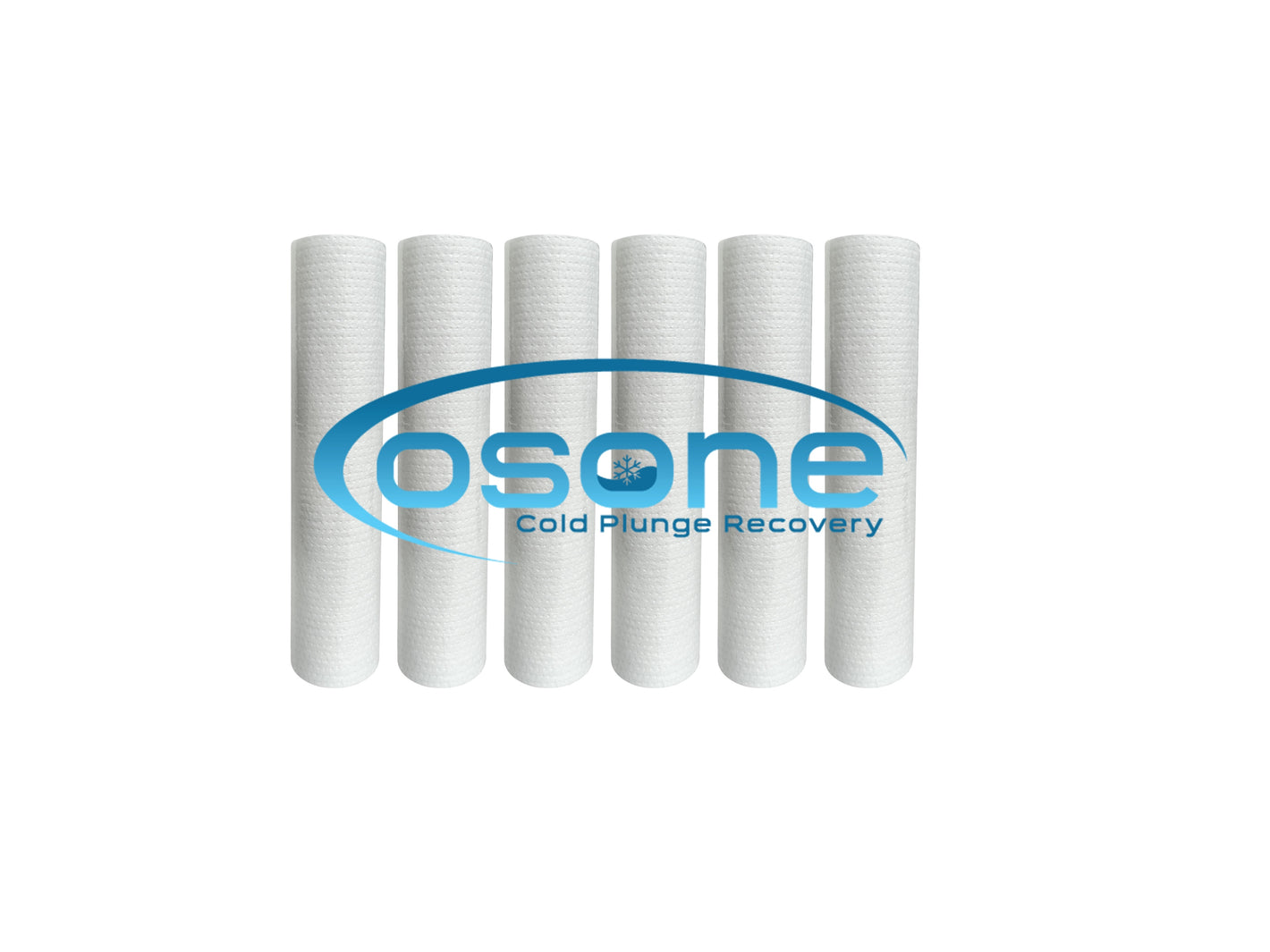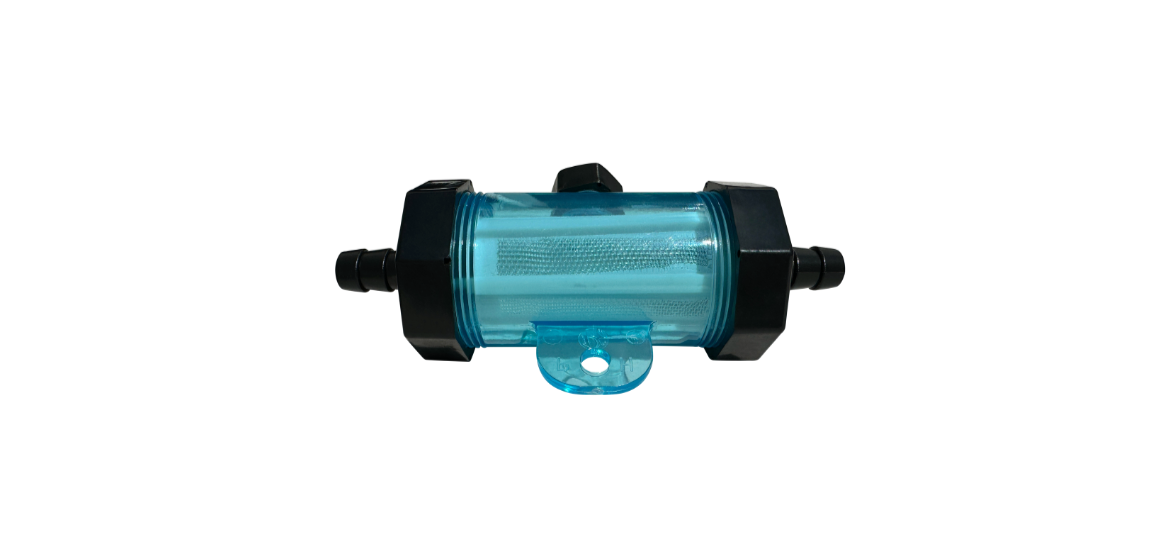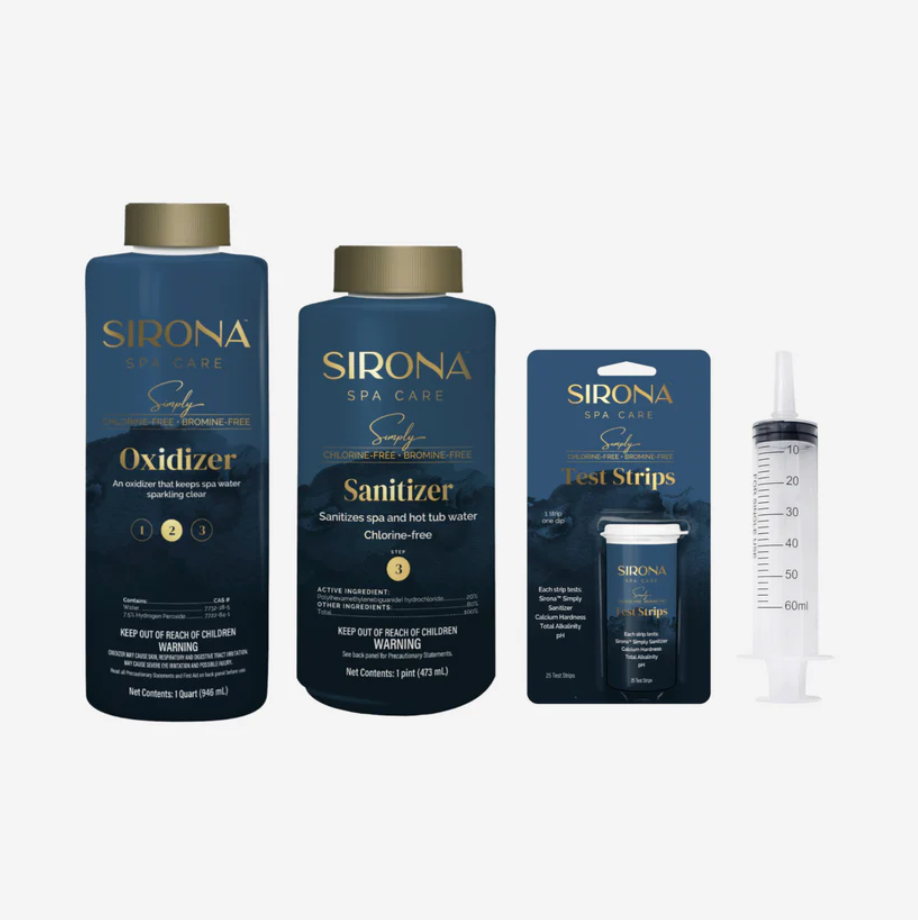Understanding the Difference Between 20-Micron, 15-Micron and 5-Micron Filters in Cold Plunging Chillers
When using a Cold Plunge Chiller, maintaining clean water is crucial for hygiene and an optimal experience. One essential component of water maintenance is the filtration system which uses filters with different micron ratings. We explore the differences between 3 different micron rated filters and how they perform in cold plunge systems.
What is a Micron Rating?
A micron is a unit of length equal to one-millionth of a meter. When it comes to filters, the micron rating refers to the size of the particles that the filter can capture. To put this into perspective, a human hair is about 70 to 100 microns in diameter. Therefore, a filter with a 5-micron rating can capture particles much smaller than a human hair, while a 15-micron or 20-micron filter will capture larger particles.
The Role of Filters in Cold Plunge Systems
Cold plunge Chillers circulate water continuously to maintain low temperatures and ensure cleanliness. Filters are used to trap impurities, such as hair, dust, debris, and organic matter, that can accumulate in the water. Over time, these contaminants can lead to murky water, bacterial growth, and unpleasant odors if not properly filtered.
Choosing the right filter micron rating for your cold plunge system depends on the level of filtration you require and how frequently you plan to clean or replace the filter.
5-Micron Filter: Fine Filtration
A 5-micron filter provides fine filtration, meaning it can capture very small particles. This level of filtration is ideal for removing:
-
Fine dust and dirt
-
Small hair strands
-
Tiny organic particles
In a cold plunge system, a 5-micron filter is highly effective in keeping the water clear and clean, especially if the system is used frequently or by multiple people. The finer filtration ensures that even small contaminants, which might not be visible to the naked eye, are removed. However, because it captures more particles, a 5-micron filter will require more frequent replacement. Failure to replace a dirty filter will cause weakened water flow and additional strain on the pump.
15-Micron Filter: Medium Filtration
A 15-micron filter offers medium filtration, suitable for capturing larger particles while allowing smaller ones to pass through. It is effective at removing:
-
Dust and dirt particles
-
Larger hair strands
-
Small debris
This type of filter strikes a balance between filtration efficiency and maintenance frequency. It works well for cold plunge systems that don’t experience heavy use or for users who don’t mind a bit of fine particulate matter remaining in the water. This filter requires less frequent cleaning and replacement than a 5-Micron Filter.
20-Micron Filter: Coarse Filtration
A 20-micron filter provides coarse filtration and is best suited for removing larger debris from the water. This includes:
-
Visible hair strands
-
Large dirt particles
-
Leaf fragments and other large debris
While a 20-micron filter is less effective at capturing fine particles, it offers the advantage of longer service life and less frequent maintenance. It is ideal for outdoor cold plunge systems where larger debris, such as leaves or insects, might enter the water. However, because it allows smaller particles to pass through, the water may not appear as clear as when using a 5-micron or 15-micron filter.
Comparing Micron Ratings: Which Filter Should You Choose?
The choice between a 5-micron, 15-micron, or 20-micron filter depends on several factors:
-
Frequency of Use: If your cold plunge system is used daily or by multiple people, a finer filter (5-micron) is recommended to maintain high water clarity and hygiene.
-
Maintenance Requirements: A 5-micron filter requires more frequent replacement, whereas 15-micron and 20-micron filters offer longer service intervals but less effective filtration. Please note that 5-micron filters require more frequent maintenance due to their ability to capture finer particles compared to 15- and 20-micron filters. Failure to maintain these filters will result in restricted water flow and increased stress on the pump.
-
Type of Contaminants: For systems exposed to larger debris, such as outdoor cold plunge tubs, a 20-micron filter might be more practical. For indoor systems where finer particles like dust and small hair strands are the main concern, a 5-micron or 15-micron filter is preferable.
-
Water Clarity Preferences: If crystal-clear water is a top priority, a 5-micron filter will deliver the best results. However, if slight cloudiness is acceptable, a 15-micron or 20-micron filter may suffice.
Maintenance Tips for Cold Plunge Filters
Regardless of the micron rating you choose, proper maintenance of your filter is essential to ensure the longevity of your cold plunge system and the cleanliness of the water. Here are some maintenance tips:
-
Regular Inspection: Check the filter regularly for signs of clogging or discoloration.
-
Cleaning Schedule: Establish a cleaning schedule based on usage. Heavily used systems may require weekly cleaning, while lightly used ones may only need cleaning once a month.
-
Replacement: Replace the filter when it shows signs of significant wear, discoloration, reduced filtration efficiency or longer cooling times than normal.
-
Pre-Filtration: Consider using a pre-filter or skimmer to capture larger debris before it reaches the main filter, especially for outdoor systems.
Selecting the right filter micron rating is crucial for maintaining clean and hygienic water. A 5-micron filter provides the finest filtration, ideal for removing tiny particles and ensuring clear water, but requires more frequent maintenance. A 15-micron filter offers a balance between filtration efficiency and maintenance. A 20-micron filter is best suited for outdoor systems or situations where coarse filtration is sufficient.
By understanding the differences between these filters and tailoring your choice to your specific needs, you can ensure a more optimal cold plunging experience with minimal maintenance and hassle. Always remember to inspect, clean, and replace your filters regularly to maintain optimal water quality and prolong the life of your cold plunge chiller.


